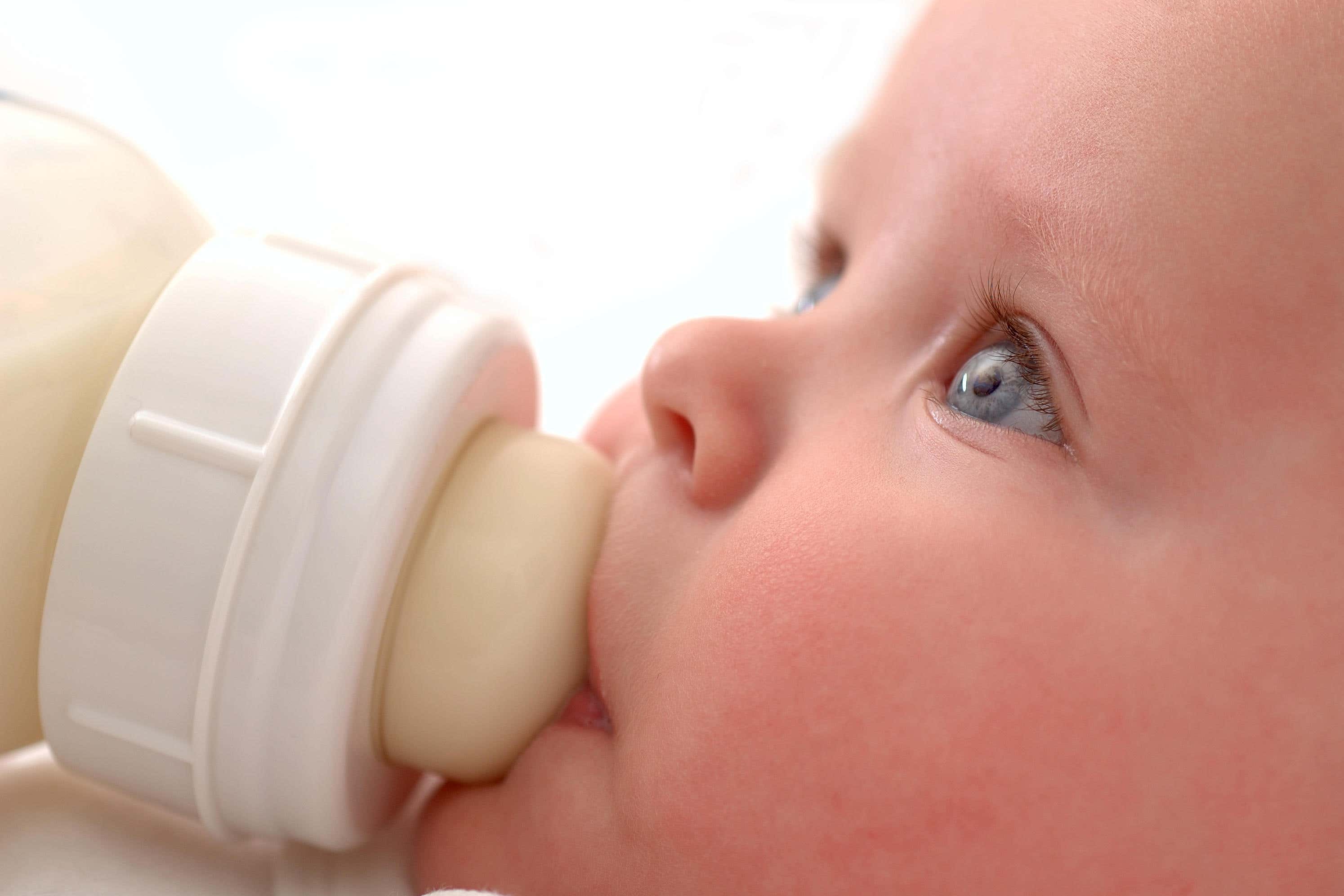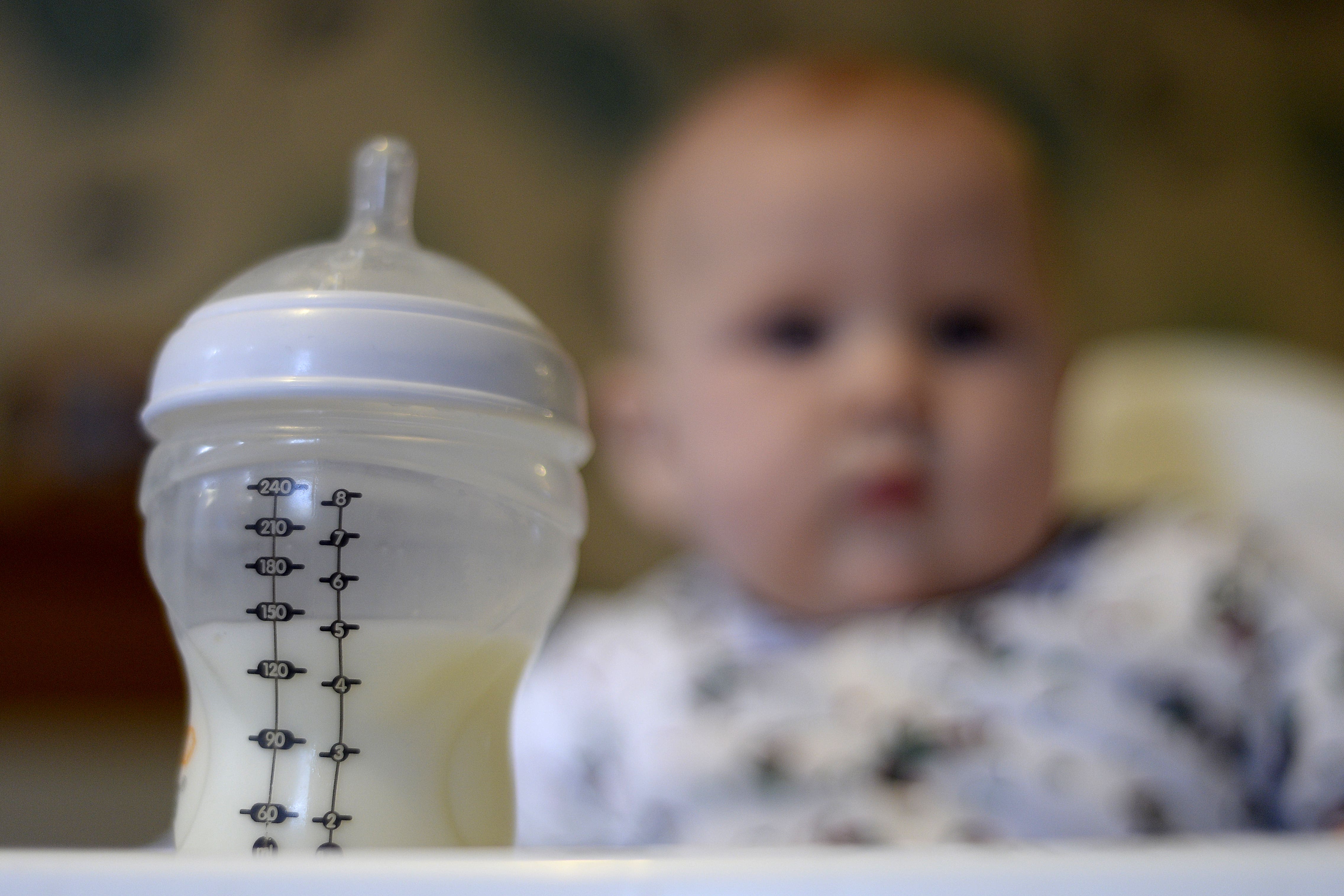Baby formula could be price capped to fight soaring costs, UK competition watchdog says
Competition and Markets Authority (CMA) warns strictly-regulated market has fuelled ‘persistent price rises’

Your support helps us to tell the story
From reproductive rights to climate change to Big Tech, The Independent is on the ground when the story is developing. Whether it's investigating the financials of Elon Musk's pro-Trump PAC or producing our latest documentary, 'The A Word', which shines a light on the American women fighting for reproductive rights, we know how important it is to parse out the facts from the messaging.
At such a critical moment in US history, we need reporters on the ground. Your donation allows us to keep sending journalists to speak to both sides of the story.
The Independent is trusted by Americans across the entire political spectrum. And unlike many other quality news outlets, we choose not to lock Americans out of our reporting and analysis with paywalls. We believe quality journalism should be available to everyone, paid for by those who can afford it.
Your support makes all the difference.Baby formula could be subject to price caps, the UK’s competition watchdog has suggested, in a bid to cut costs for vulnerable, young families.
In a report released on Friday, the Competition and Markets Authority has also proposed the government releasing its own, cheaper product to combat soaring prices as part of an array of measures to shake-up the tightly regulated market dominated by just a handful of players.
The CMA’s infant formula market study said restrictions on advertising price points and a lack of impartial information comparing products meant timepoor parents were over-reliant on brand recognition, and equated expensive formula with top quality.
“Our consumer research found that the desire to purchase a premium brand is ‘felt particularly strongly amongst mothers who had hoped to exclusively breastfeed. They have heard ‘breast is best’ and therefore feel even more guilt if they make a rational budgeting decision in their choice of formula brand,” the watchdog said.
The interim report, published ahead of a final paper on the topic in February, said formula prices for between 800 and 900g of powder had risen by up to 36 per cent between December 2021 and December 2023.

It said that while they had decreased this year, they still remained at early 2023 levels for all but the cheapest two brands, and buying the current market leader Aptamil’s 800g tubs at the price offered by supermarket chain Tesco would cost around £700 (as of July this year) over the first year of a baby’s life.
The CMA said one way to counter this was to introduce a price ceiling, however said this could have the adverse effect of all products converging at higher costs, and reduced the incentive of manufacturers to compete in other, innovative ways.
The authority also said the government could itself buy formula from a third-party and sell it under NHS branding. “This would introduce greater choice for parents and a lower price point. In turn, it may also put downward pressure on other manufacturers’ prices,” the report said.
However, it cautioned that measure would involve high up-front costs to the public purse, and not necessarily dissuade consumers from seeing price as a marker of quality.
The sale of infant formula in the UK is subject to strict regulations, including barring promotions based on price, with the aim of preventing the discouragement of breastfeeding for new mothers.
However, the watchdog said that rule has contributed to a less competitive market fuelling persistent price rises for families already contending with higher grocery bills, and suggested relaxing regulations to allow retailers to publicise price reductions.
The report also discussed the provision of formula in hospitals, and the visibility of some brands over others in those settings contributing to parents’ choices when buying. It said one option would be to require formula to be presented in standardised packaging in healthcare settings.
Other suggestions included requiring accurate, impartial information on the nutritional standards of each formula in shops, and to be displayed on the products by manufacturers, to assure consumers all products meet base requirements.
Join our commenting forum
Join thought-provoking conversations, follow other Independent readers and see their replies
Comments